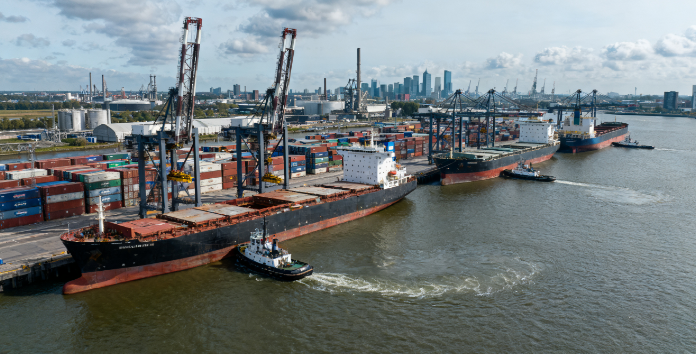
The strike crisis at the Port of Rotterdam has escalated, with around 700 freight workers responsible for ship and container lashing operations initiating a strike. The originally planned 48-hour strike has been extended indefinitely, leading to a complete halt in container loading and unloading operations at the port.
Due to the strike, container ships are unable to load or unload cargo, resulting in over 60 vessels being stranded at sea, with approximately 20 of them being container ships waiting for lashing workers to resume operations. Despite a court order in Rotterdam instructing workers to return to handle the backlog of cargo after 7 a.m. on Monday, the actual situation remains uncertain.
This strike has caused "extremely disruptive" effects on the Port of Rotterdam, and additionally, pilots at the Port of Antwerp in Belgium have also initiated a strike, further exacerbating uncertainties in the regional supply chain. If the situation deteriorates further, there is a risk of the European logistics network facing paralysis.
Recent updates indicate that the Rotterdam court has partially suspended the strike by lashing workers, ordering the strike to continue until 7 a.m. on Monday, after which the workers must return to handle the backlog of cargo at the port. If negotiations do not progress smoothly and an agreement is not reached, workers may strike again on Friday, October 17, at 7 a.m. FNV union and lashing companies ILS and Matrans are working towards reaching a collective bargaining agreement; if no agreement is reached on Friday, a second hearing or court ruling may take place.
The primary reason for the strike is a wage dispute. Initially, the FNV union demanded a 7% increase in wages on top of automatic inflation compensation, which was later slightly reduced to 6.5%. However, employers ILS and Matrans deemed this increase to be excessive, proposing wage increases of 4% and 6% annually instead. They have described this strike as "unreasonable" and "extremely disruptive."
